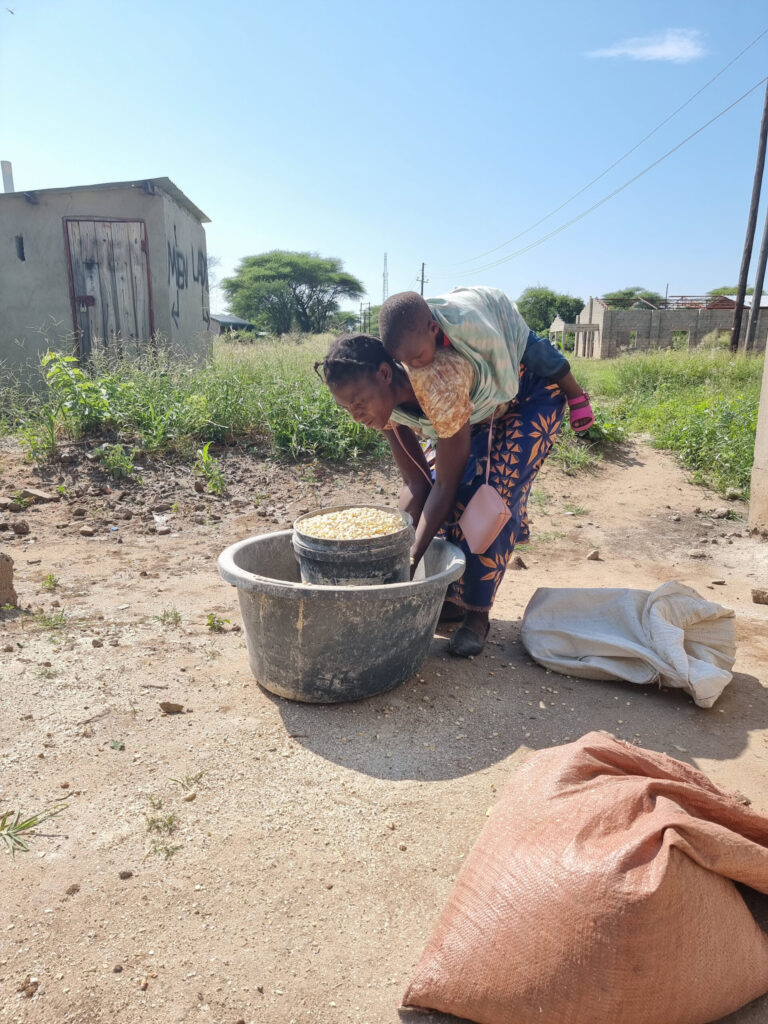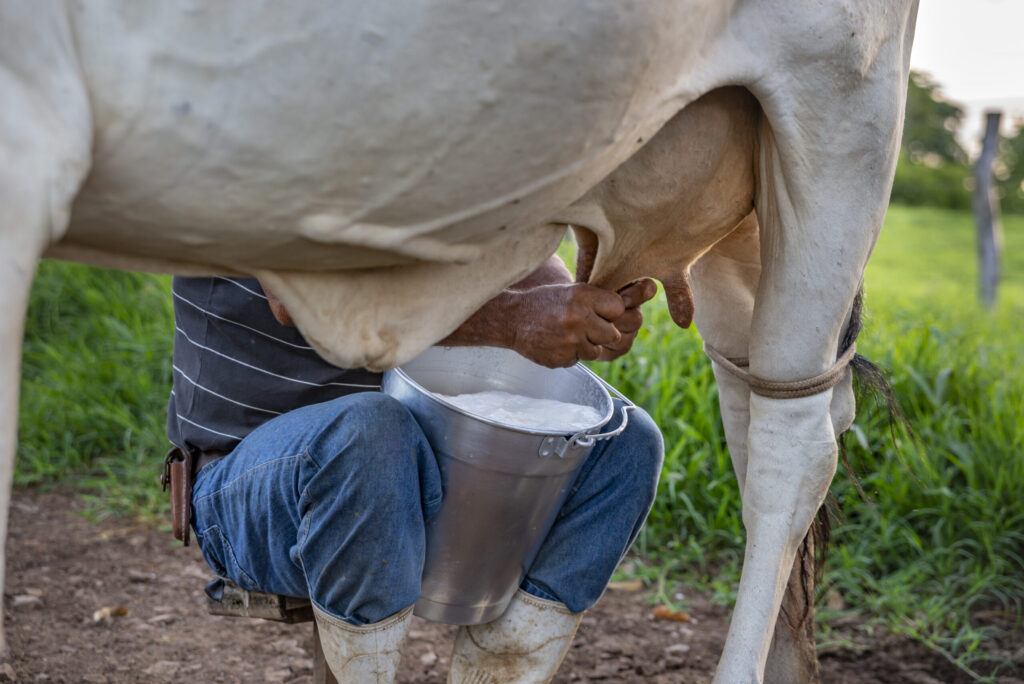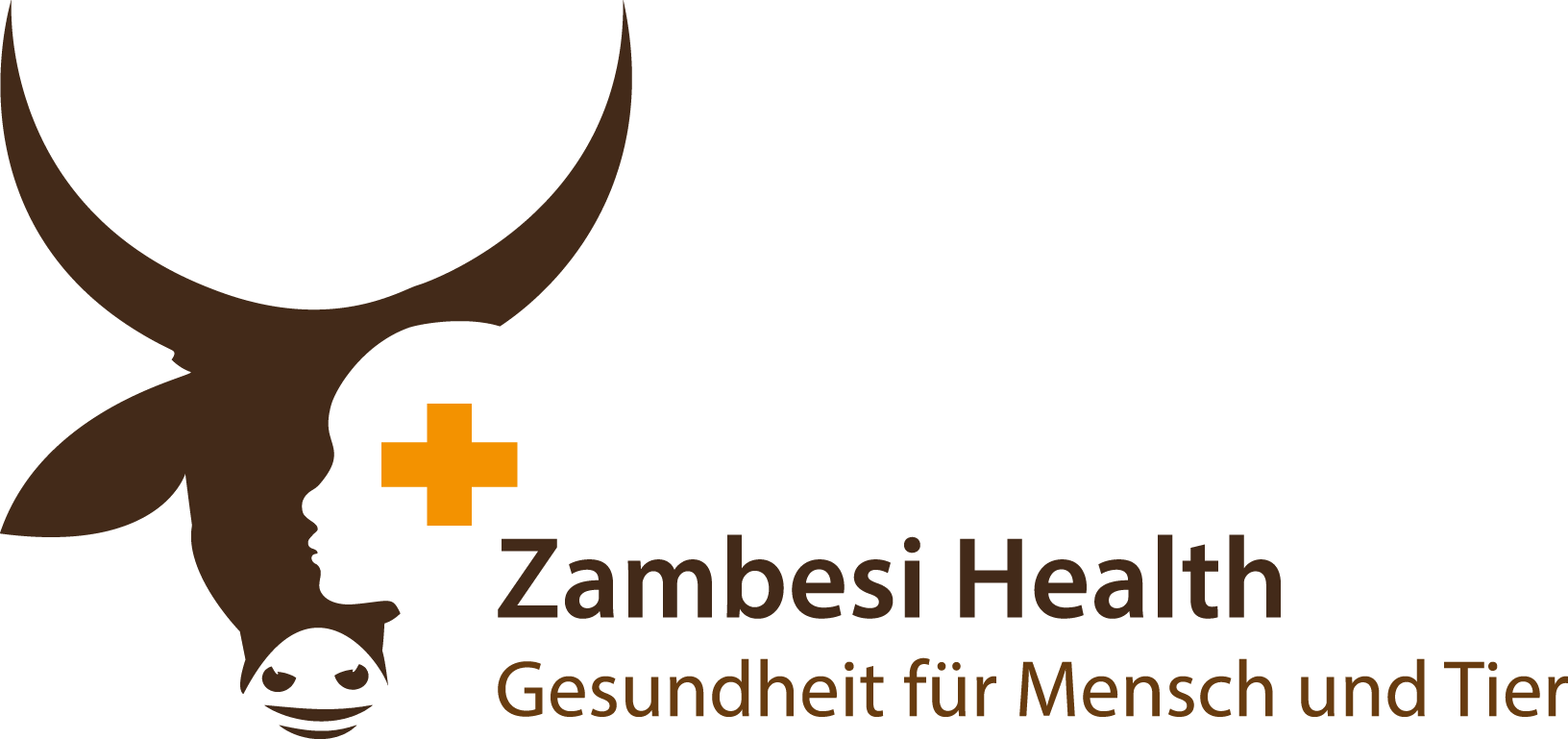One Health training farm
A promising project is being developed in one of the poorest regions of Zambia: together with local partners, Zambesi Health is planning a One Health training farm to improve living conditions through training in sustainable agriculture.



Eine Farm, die ausbildet
In einer der ärmsten Regionen Sambias entsteht ein hoffnungsvolles Projekt: Gemeinsam mit lokalen Partnern plant Zambesi Health eine One Health Trainingsfarm, um durch Schulungen in nachhaltiger Landwirtschaft die Lebensbedingungen zu verbessern.
Opportunities for women in agriculture
In the structurally weak Kazungula region of Zambia, our association Zambesi Health is planning to set up an innovative training farm for smallholder farmers. Through theoretical training and the practical demonstration farm for sustainable dairy farming, the participants are to be enabled to join together to form a cooperative and continue to run the farm independently. The project aims to strengthen the education, income and self-determination of women in the region. Please support this project with your donation and open up new perspectives for disadvantaged women farmers!



Our goal
Our aim is to give women in particular access to education in sustainable agriculture, dairy cattle farming and the marketing of products. This should facilitate their access to the economic cycle and thus improve their income and the livelihood of their families. Cooperation with the existing local farmers’ cooperative in Kazungula is also planned and will increase acceptance of the project in the region.
Ways out of poverty
Many small farmers in the region live below the poverty line. Dairy farming has the potential to increase income, but has hardly been run profitably to date. There is a lack of knowledge about efficient milk production, suitable cattle breeds and a needs-based feed supply. This is precisely where the planned training farm comes in: It aims to tackle these specific problems and give small farmers access to sales markets. Training in modern dairy farming is intended to sustainably improve the income of small farmers.
The smallholder farmers in the region live with their families in remote, rural areas close to the border with Zimbabwe, Botswana and Namibia. The husbands often earn their money through odd jobs far away. The women cultivate 1-2 hectares of land, often on land without formal land rights. Due to their remote location, they have only limited access to markets, knowledge and modern agricultural technology. With the training farm, we want to improve the situation of the women by imparting concrete skills and knowledge for efficient milk production. The aim is to make them more independent and thus strengthen their position in the community and enable them to generate their own income.

Actual state
Subsistence farming with maize, sorghum millet, peanuts and vegetables usually only covers subsistence needs. There is a lack of modern equipment, fertilizer and agricultural know-how. In addition, irregular rainfall and infertile soils make higher yields difficult.
Within the smallholder community, women are particularly marginalized and disadvantaged. Their situation is characterized by:
- Lack of access to education: Two thirds of women are illiterate. A lack of knowledge limits productivity and development opportunities.
- Lack of land ownership: Although women do most of the field work, they usually do not own their own land. They farm their husbands' plots without any say of their own.
- Lack of co-determination: Women have little say in agricultural or financial decision-making processes at household level or in the village community.
- Restricted freedom of movement: In addition, there are social norms that regulate women's activities, such as the commercial marketing of their own products.
- Lack of access to microcredit and rural advisory services, which are predominantly geared towards men



5 cornerstones
The One Health training farm is based on 5 pillars, the contents of which are interlinked
1. feed production, because only those who eat can give milk.
2. dairy cattle farming: a
practical
demonstration farm to apply what you have learned
3rd training center:
Transfer of know-how and certification
4. cooperation with local organizations roots the project locally
5. sale of farm products enables the increase of income
1. animal feed production
Until now, the smallholders have mainly kept beef cattle of local breeds, which graze freely and have to find their own water and feed. In the dry season, the landscape is extremely barren. Dairy cattle cannot be kept under these conditions as they need constant access to feed and water. Feed production for dairy cattle is a challenge due to the climatic conditions in Zambia. However, it is possible to produce silage from maize in the African style or to feed so-called fodder, i.e. freshly germinated wheat or other cereal grass. Hay can also be produced. Home-made compost should be used as fertilizer and the spread of plant diseases should be prevented through mixed cultivation.
2. dairy cattle farming
The participants can then put their new knowledge into practice on the farm. They are responsible for looking after and caring for the dairy cattle. This includes feeding, milking, cleaning the barn and health and hoof care. Under real conditions, they learn about the entire day-to-day life of a dairy farmer – from daily routine work to dealing with illnesses and emergencies. The participants go through various stations on the farm. Initially, they are accompanied by experienced staff to get a feel for the processes. As they become more confident, they take over the care of the animals independently.
3. training center
At the training center, participants learn the basics of dairy farming in theoretical courses. You will be introduced to the special features of keeping dairy cattle, learn all about feeding them according to their needs, regular milking and disease prevention. After passing the final exam, they receive a certificate as a dairy farmer. Experienced trainers and mentors are on hand to provide advice and support throughout the on-the-job training on the farm. The farm thus offers the ideal environment for learning all facets of dairy farming and gaining valuable practical experience. The idea is for these successful graduates to form their own cooperative and continue to run the dairy cattle farm together.
4. cooperation
Sharing knowledge in the local context is very important to us, especially when it comes to selecting the right breed or special feed regimes. In particular, there will be a close exchange with the agricultural and veterinary faculties in Zambia. Students and lecturers are cordially invited to visit the farm, participate and contribute their knowledge. We are also planning joint workshops and courses for further training.
Other farmers who already keep dairy cows in Zambia are also welcome to share their experiences. We would also like to cooperate with the Zambian Farmers’ Association in order to benefit from their knowledge and pass on our findings.
In general, we see the farm as a learning and demonstration farm that is open to interested visitors from agriculture and science. Interns are very welcome. Our aim is to further develop the project in the best possible way through this broad exchange of knowledge and to make a contribution to the region.
5. sale of farm products
In addition to the farm’s internal operations, the women also learn how to process and market the dairy products. The aim is to produce and sell as many refined products as possible in order to increase added value. The participants produce butter, cheese such as halloumi or mozzarella and yogurt according to traditional recipes. They also make honey, jam and tomato sauce for pizzas. Some of the raw milk is sold to the local cooperative as a regular customer. The products are then offered on the market. A small café is also planned where the home-made products can be enjoyed. In this way, the women learn the entire process from milk production to processing and marketing and gain valuable skills for an independent livelihood.
Around 2,000 small farmers in the area, initial focus on 200 women.
Later expansion of the target group to the entire region.

Activities
- Workshops on the theory and practice of dairy farming
- Demonstration farm with a small dairy herd
- Internships on the farm and established dairy farms
- Knowledge exchange with universities, NGOs and farmers' associations
- Structure of the value chain: feed production, animal husbandry, marketing

Scheduling
As a first step, a meeting of the Zambian NGO with representatives of the German NGO and all interested women farmers is to take place in January 2024 to present the project and work it out in more detail.
A local project manager is being sought and will initially be employed on a permanent basis for one year in order to drive forward the planning on site.

The next steps
What questions remain unanswered?

The shortcode is missing a valid Donation Form ID attribute.
Support
You us!
Join us and help shape sustainable change in southern Zambia! Zambesi Health relies on the pioneering One Health concept to improve the quality of life locally. Your commitment can make the difference – we are working to strengthen food hygiene and animal health. From training courses to practical measures on site: every contribution counts!
Together we are creating a healthier environment and promoting sustainable lifestyles.


